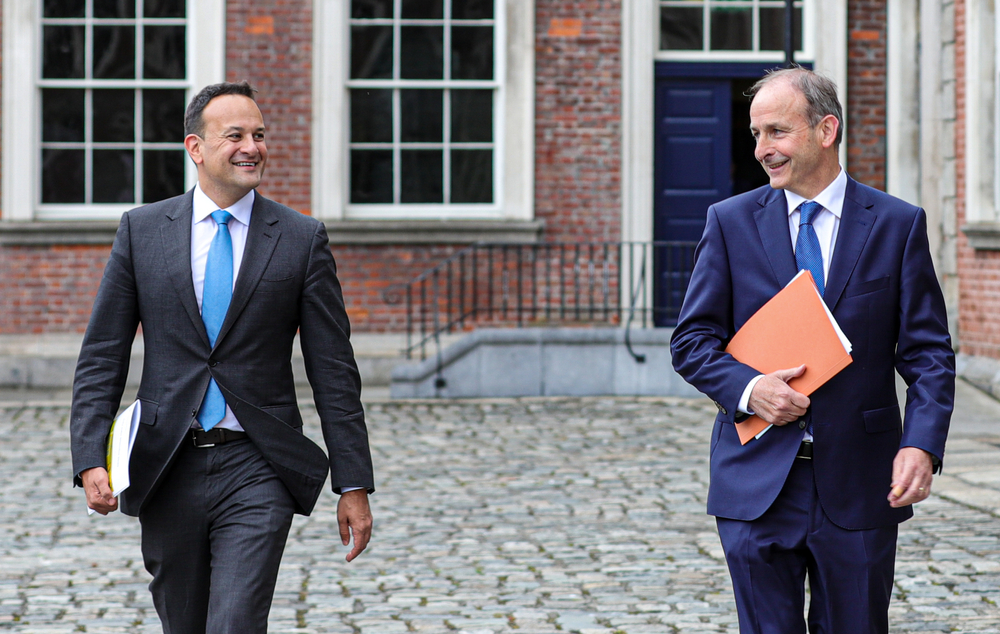Mental Health In Ireland: A 2021 Review
 AS ANOTHER testing year finally draws to a close, we take a look back on how Ireland handled its mental health in 2020. Did the HSE step up with supports to help those in need? Did we gain a greater understanding of how to help our fellow man in times of need? Or was it ‘ah sure it’s grand’ business as usual? Let’s take a look:
AS ANOTHER testing year finally draws to a close, we take a look back on how Ireland handled its mental health in 2020. Did the HSE step up with supports to help those in need? Did we gain a greater understanding of how to help our fellow man in times of need? Or was it ‘ah sure it’s grand’ business as usual? Let’s take a look:
January
As fresh restrictions locked the country down yet again, the nation steeled itself for more uncertainty and dread. Mental health activists again warned that the government spending just 6% of its health budget on mental health (compared to 12% in other EU countries) simply wasn’t enough. However, the nation had other things to worry about so this was put on the long finger.
February
The HSE was awarded a spot in the Guinness Book Of World Records under ‘longest finger’.
March
People presenting to A&E with mental health problems such as self-abuse or suicidal tendencies are introduced to a ‘wonderful TV show called Young Sheldon’. ‘Ah it’s very funny’, a senior HSE spokesperson stated. ‘Give it a watch over the weekend and come back to us if you still want to kill yourself, we’re a bit busy at the minute’.
April
A damning report reveals that 2,551 children and young people are waiting for Child and Adolescent Mental Health Services, and 8,893 children are waiting for primary care psychology treatment. A counter-report from the government states that 2,551 children and young people are probably grand and 8,893 children are trying to get a few days off school.
May
With things looking bleak from a pandemic perspective, the government pins all its hopes on a mental health strategy for the summer named ‘Operation Get A Bit Of Sun, You’ll be Grand’.
June
Operation Get A Bit Of Sun is immediately shut down after images of young people enjoying themselves appear on social media. ‘This is not what we meant by summer outdoors’ the government state, as images of young people outdoors in summer cause outrage among voters.
July
A soaring heatwave brings some much-needed Vitamin D to a depressed nation, who are advised to not think about climate change and rogue weather conditions and the such like as it’ll only depress them again.
August
A survey by the Royal College of Surgeons shows that almost 25% of people reported a decline in their mental health during the pandemic, with even aul lads and aul lassies finally admitting that mental health issues weren’t just something this snowflake generation came up with because they’ve never known real hardship.
September
A report reveals that suicide rates in Ireland have fallen to their lowest levels in two years, resulting in a huge sigh of relief from the government and a victory dance of ‘we told you it wasn’t that bad’.
October
€10mn of mental health funding promised earlier in the year is written into Budget 2022 as a once-off boost to the sector. Although it falls short of the amount needed to bring Ireland up to speed with the rest of Europe, campaigners state that it’s a step in the right direction and that it will be a huge help to people in need, providing the funding is spent correctly.
November
€1.8mn of the €10mn fund is allocated to the purchase of low emission vehicles for HSE staff. Mental health campaigners thank them for ‘the first good laugh we’ve had in ages’.
December
As the year rolls to a close, stats reveal that a third of young women and a fifth of young men have reported suffering from depression, which has been marked as a ‘2021 problem with a 2022 solution’ by the government, who promise everything will be grand, honest.